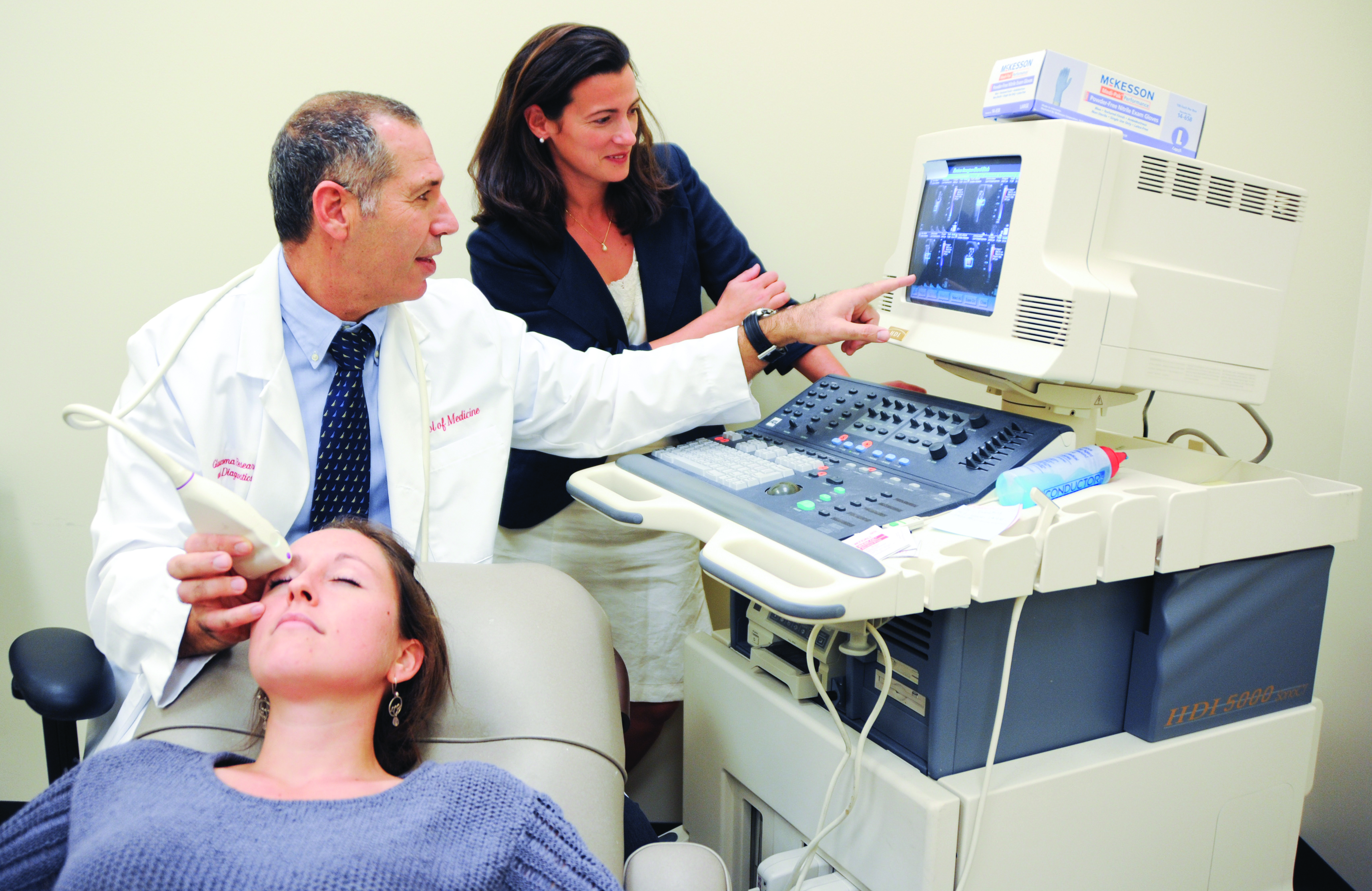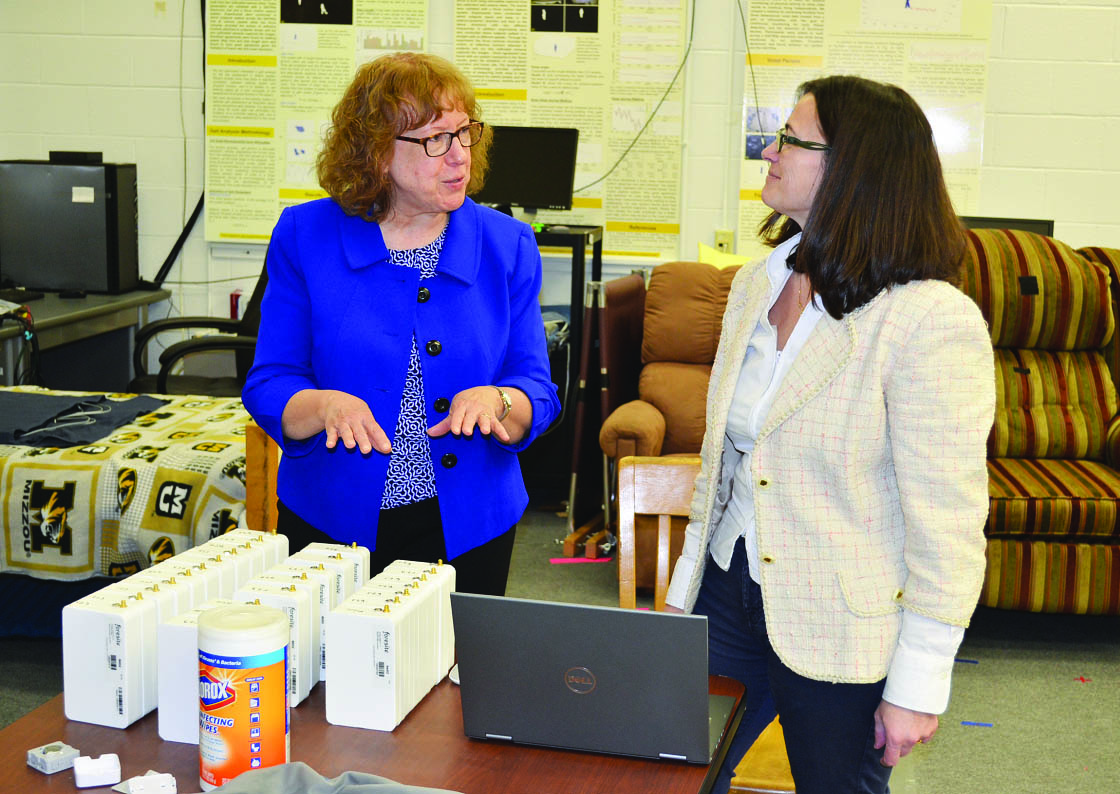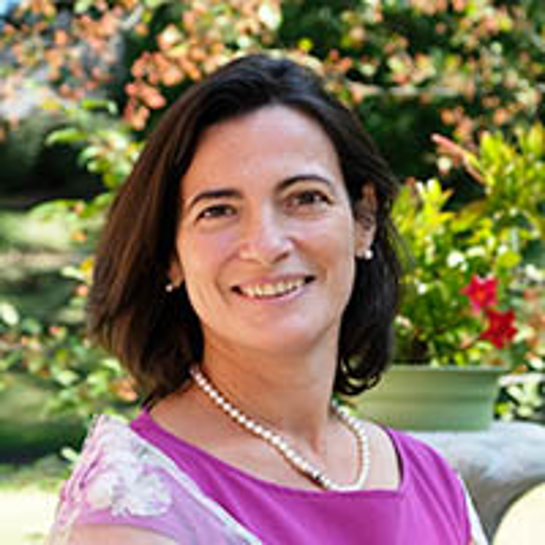Academia or Industry…Why Not Both?
Children are often asked, “What would you like to do when you grow up?” Personally, I hope that I will never stop growing and will be able to do many different things throughout my life. The notion that I had to choose only one career always bothered me. When prompted with questions like “Do you want to be a mathematician or an engineer?” or “Would you prefer to work in academia or industry?”, I routinely wonder: “Why not both?”
I always dreamed of conducting academic research, though I never had a clear sense of the specific field on which I wanted to focus. Initially, I studied materials engineering and appreciated engineering’s capacity to solve problems with concrete, direct impacts on society. I admired the creative and applied sides of the field, as well as the use of mathematics and physics to address complex scenarios. In response, I pursued a Ph.D. in mathematics and a postdoctoral appointment in scientific computing. The learning curve was steep but certainly worthwhile.
I first considered a career outside of academia when I had to make important decisions about my job and personal life. As my family and I prepared to move between cities, I felt compelled to reevaluate my career. I loved the intellectual agility that academia provides and truly enjoyed interacting with students and colleagues from all disciplines. Yet because the prospect of attaining an academic appointment at my next destination seemed unlikely, I pondered the idea of opening my own company. After all, I was building my career on the fact that mathematics can be applied; why not apply it directly with organizations in need of mathematical services?
The thought of becoming a consultant was simultaneously exciting and scary. I worried about how to find clients and draft contracts and fretted over my ability to maintain a continuous inflow of revenue. I also wondered whether my consulting endeavors would generate intellectual property and if legal troubles could ensue. These thoughts and others began haunting me in 2009, when we relocated from Houston, Texas, to Indianapolis, Indiana. I was therefore greatly relieved when I finally secured a faculty position at Indiana University–Purdue University Indianapolis.

Even though I had shelved the consulting idea for the time being, the sole fact that I had entertained the thought made me more aware of my research’s potential impact in a broader sense. I could publish articles to communicate new discoveries, but I could also file patents for ideas that might lead to marketable services or products. In 2015, I coauthored my first patent on the use of mathematical models to diagnose disease conditions in the eye and develop new therapies.
Filing a patent was actually quite easy. Since the discovery occurred in an academic setting, the Indiana University Research and Technology Corporation (IURTC) handled all of the paperwork and covered the costs. As the inventor, I filled out an invention disclosure form that described the contents of my work. The IURTC personnel—along with an external group of specialized attorneys—then drafted and filed the patent.
Consulting Is What Happens When You Make Other Plans
My prior worries about finding work resurfaced once more when my family relocated yet again, first from Indianapolis to Strasbourg, France in 2014—where I found employment at Université de Strasbourg—and then from France to Columbia, Missouri, in 2017 — where I joined the faculty at the University of Missouri. My colleagues in Missouri introduced me to the world of sensors for noninvasive monitoring of cardiorespiratory function. We investigated signal shapes and built a mathematical model based on differential equations that explained these shapes according to fundamental principles of cardiovascular physiology. While publishing an article about our findings in 2018, I filed another patent through the University of Missouri’s Technology Advancement Office (TAO).
Shortly thereafter—at a time when I thought I had put my consulting ambitions to sleep—a company approached me that was interested in my cardiovascular monitoring patent. That was when I finally realized that I could truly become a consultant. I contacted the TAO and the University’s Conflict of Interest Committee (COIC) to ensure that I was allowed to consult for external companies while also serving as faculty. I received approval but discovered that there is a limit to the number of hours per month that staff can devote to such activities. It is also important for consultants to clarify who will own new intellectual property that their activities could potentially generate.
I hired an attorney to affirm that I was doing things correctly. Starting a company is surprisingly simple; one only needs a name, a bank account, and an Employer Identification Number. The attorney filed the necessary documents to the State of Missouri and checked that the name I chose was available. Just like that, Gspace LLC was born in October 2019. When a company approached me to enlist my services, my attorney helped me review the contract to confirm that I was covered from all angles. I recovered all of the legal fees within the first month.
Consulting in Practice

My first consulting job required that I provide guidance on the design and optimization of sensors for cardiopulmonary monitoring in assisted living facilities to verify that the acquired signal actually contained the physiological data of interest. I employed my expertise in mathematical modeling of the cardiovascular system but also learned many new concepts that pertained to signal processing, hardware solutions, and—most importantly—human interactions with the devices. I continue to meet weekly with a team from the sensor company, which sets work goals according to the company’s strategic development plan. We then define specific tasks based on these goals that will not exceed my allotted monthly time. I express my opinion, but the company makes all final decisions regarding future directions for the project. I can thus simply enjoy solving real problems using mathematics, and our arrangement allows me to effectively balance my time between academia and consulting.
I was recently approached by another company that wants to apply mathematical modeling to evaluate the outcomes of certain drugs. This time, setup was very easy; I received approval from the COIC, enlisted my attorney to help review the consulting contract, and now have a second client.
To be honest, I have not been actively looking for more customers. My academic position serves as my primary means of income and allows me the privilege of being selective in the consulting projects that I undertake. I also try to work in areas that are somewhat aligned with my academic research interests in order to use my time effectively. Therefore, I do not currently have a company website or a marketing strategy — though I know that I could step up my game and change my career priorities if I so desired.
Useful Tips
If you also enjoy the academic environment but would like to apply your research to real-world scenarios as a consultant, the following tips might help you get started:
- Consider filing patents in addition to writing articles; ask yourself whether some aspects of your research could lead to marketable services or products.
- Get to know the people in your technology transfer office and familiarize yourself with invention disclosure forms.
- Know the requirements for your institution’s conflicts of interest and commitment, as requirements can vary from place to place.
- Hire external help for specific needs, such as an attorney to review contracts and a company to assist with tax returns.
- Find a balance that works for you, in terms of time and intellectual engagement.
My experience as a consultant has been extremely rewarding so far, and I personally feel more alive when I do multiple things simultaneously. My family and I receive an additional revenue stream, I can save more money for my retirement since I own a business, and I get to actively see people benefit from my mathematical research. The sensors that I helped to design currently monitor hundreds of elderly individuals in assisted living facilities. They provide early warning of deteriorating cardiopulmonary conditions and have already saved many lives. Math can genuinely improve people’s quality of life.
Academia or industry: why not both? I truly believe that my academic research and experience make me a valuable consultant, and my consulting activities make me a better scientist. I have no idea what’s next, but I am happy to say that I am still in the process of figuring out what I want to do when I grow up.
About the Author
Giovanna Guidoboni
Associate Dean of Research, University of Missouri
Giovanna Guidoboni is Associate Dean of Research in the College of Engineering and a professor with joint appointments in electrical engineering and computer science and mathematics at the University of Missouri. Her research focuses on mathematical modeling and data science in the context of engineering and the life sciences. She collaborates nationally and internationally in areas such as ocular blood flow and risk factors.

Stay Up-to-Date with Email Alerts
Sign up for our monthly newsletter and emails about other topics of your choosing.



